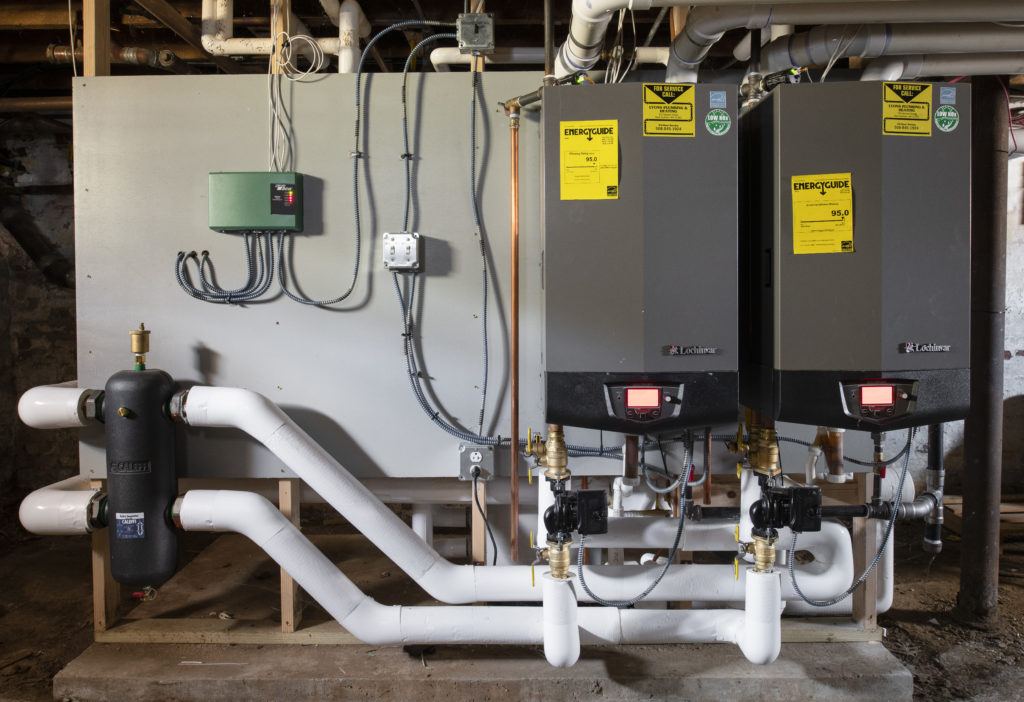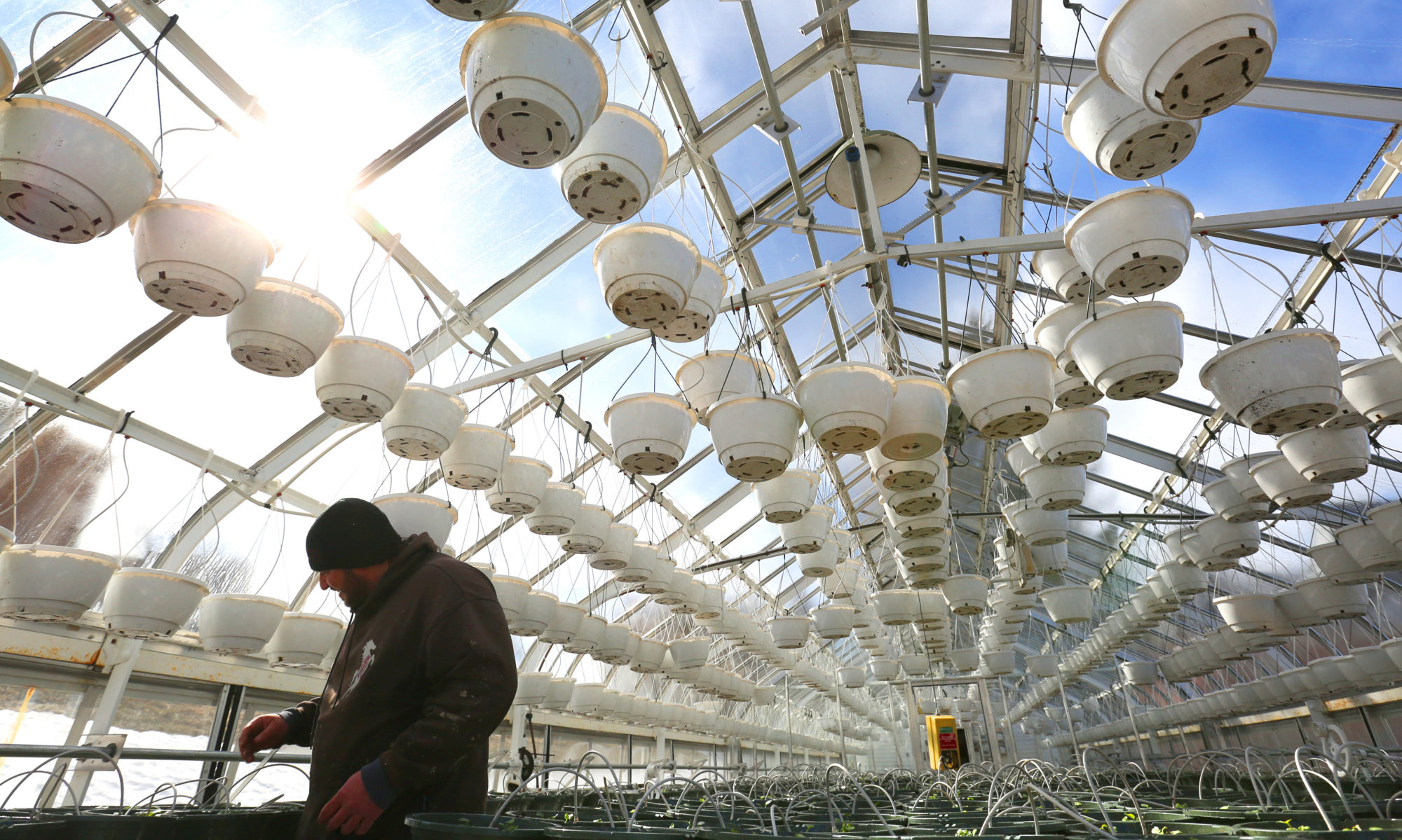Less visible projects, like improving heating and cooling efficiency, stay hidden but drastically impact the Holy Cross’ carbon footprint. John Cannon, the director of facilities operations, reveals these hidden projects that continue to advance the College’s environmental goals.
Campus Composting: Zero waste at Kimball Main Dining Hall
The 2009 decision to go “trayless” in the main dining room saved more than one million gallons of water and greatly reduced general food waste. Now, Kimball Main Dining Hall & Kimball Food Court recycle or compost 100% of its waste. Any waste that cannot be recycled or composted is burned for energy. In the first year of this initiative, 110 tons of food waste that would have otherwise been thrown in a landfill was composted.
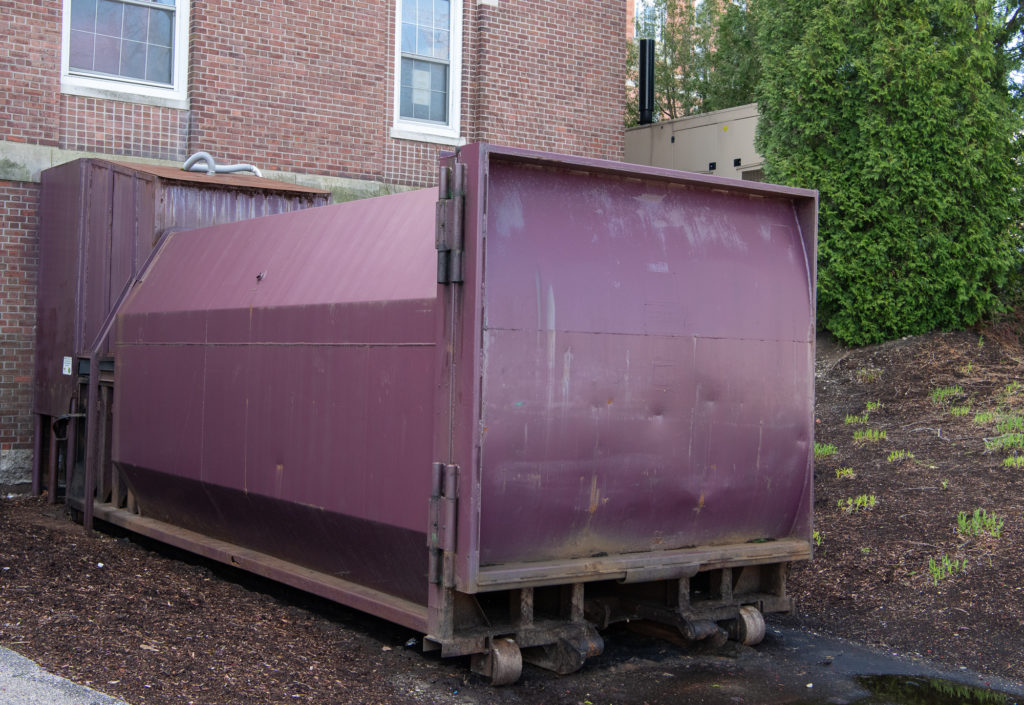
Single-Stream Recycling: Diverting waste since 2012
Holy Cross has diverted waste from the trash stream since the 90s. In 2012, the College adopted a single-stream recycling program. Need a reminder on the three guiding principles? 1) Recycle all empty plastic bottles, cans, paper, and cardboard. 2) Keep food and liquid out of the recycling bin. 3) No plastic bags.
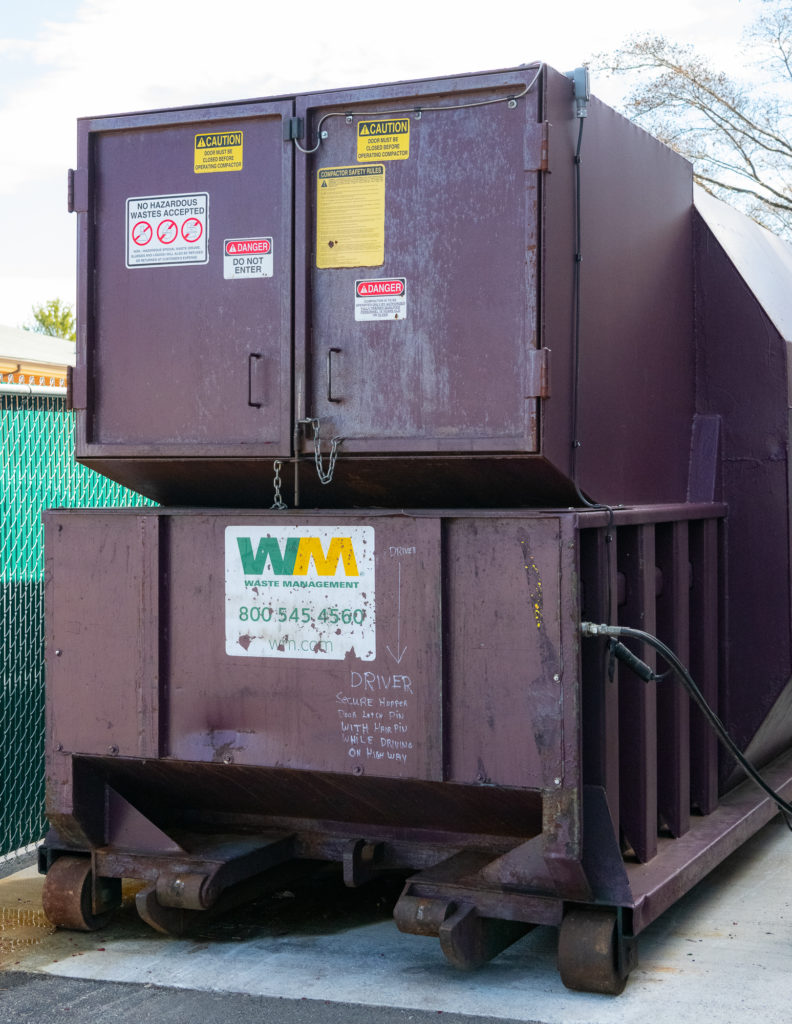
Eco-Friendly Cleaning: Increasing indoor air quality
Building Services exclusively uses environmentally-friendly cleaning products, avoiding products that contain Volatile organic compounds (VOC). Furthermore, Building Services orders supplies in bulk to reduce packaging waste.
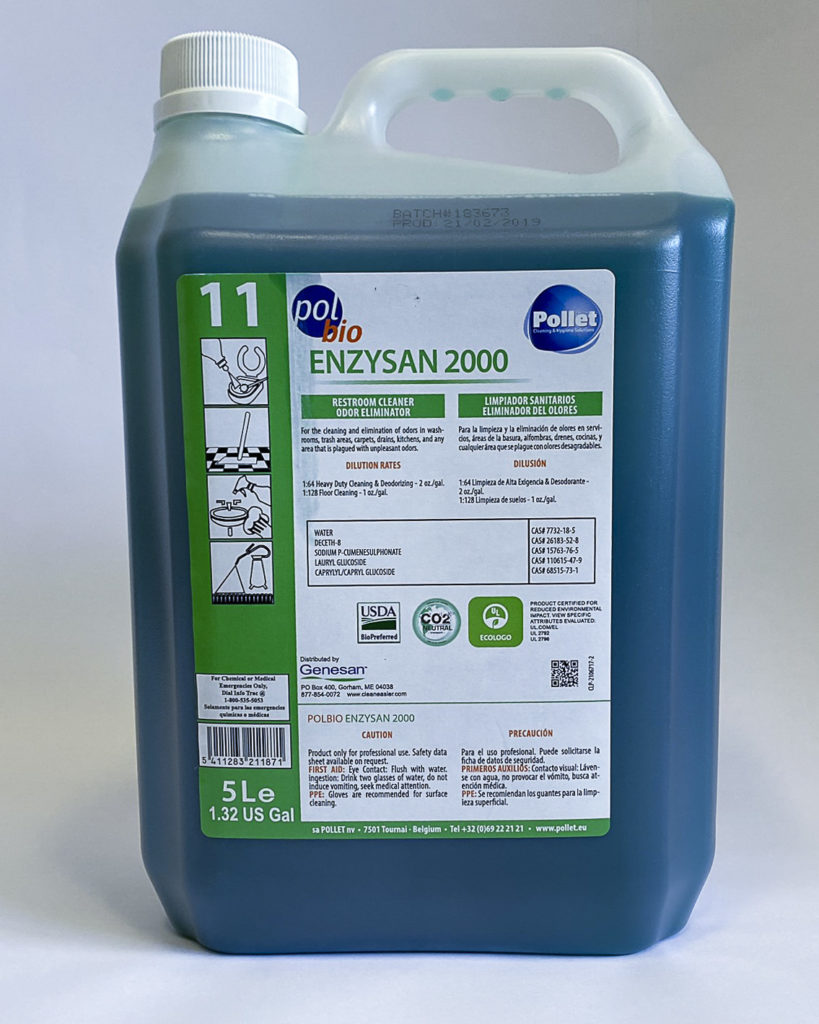
Chillers at Stein Hall: Move heat effectively
Chillers help transfer heat from an internal environment to an external environment. This process takes a lot of energy, but Stein Hall has a high-efficiency system. This system supports the College’s energy conservation efforts.
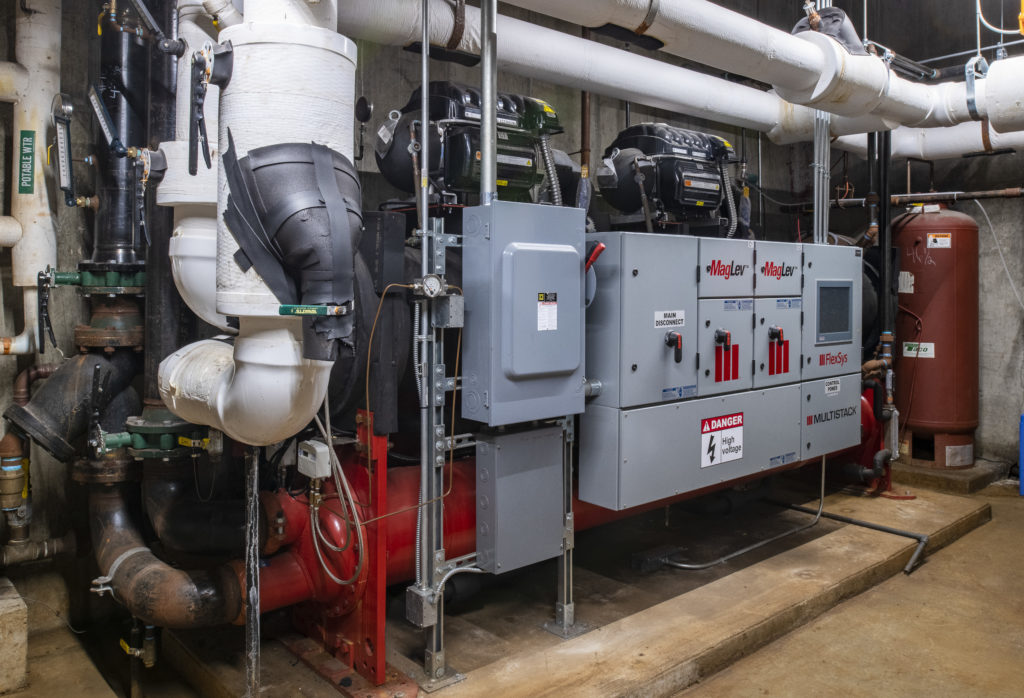
Loyola Hall Heating: Delivering comfort and energy efficiency
More than 300 upperclassmen experience highly-efficient heating at Loyola Hall. A heating system that cuts energy usage by maximizing the conversion from fuel to heat.
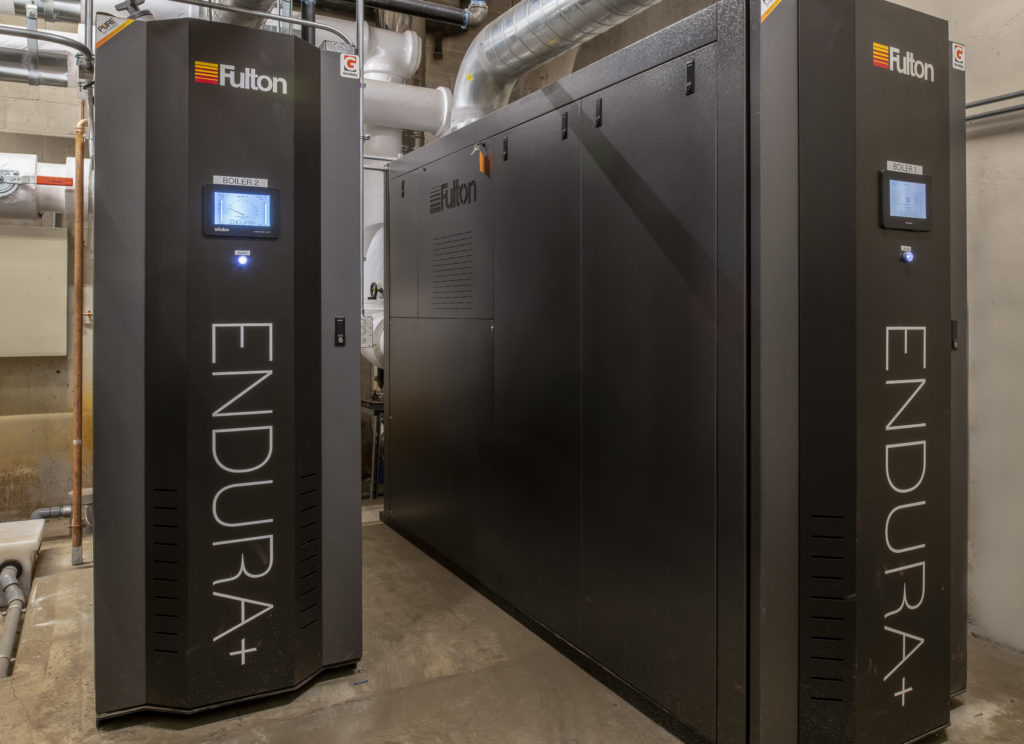
Apartment Composting: Offsetting carbon a pound at a time
Figge Hall and Williams Hall residents drop off food waste at two freezers. This waste then gets composted off-campus. Fun fact: The composting process offsets carbon instead of contributes to carbon emissions.
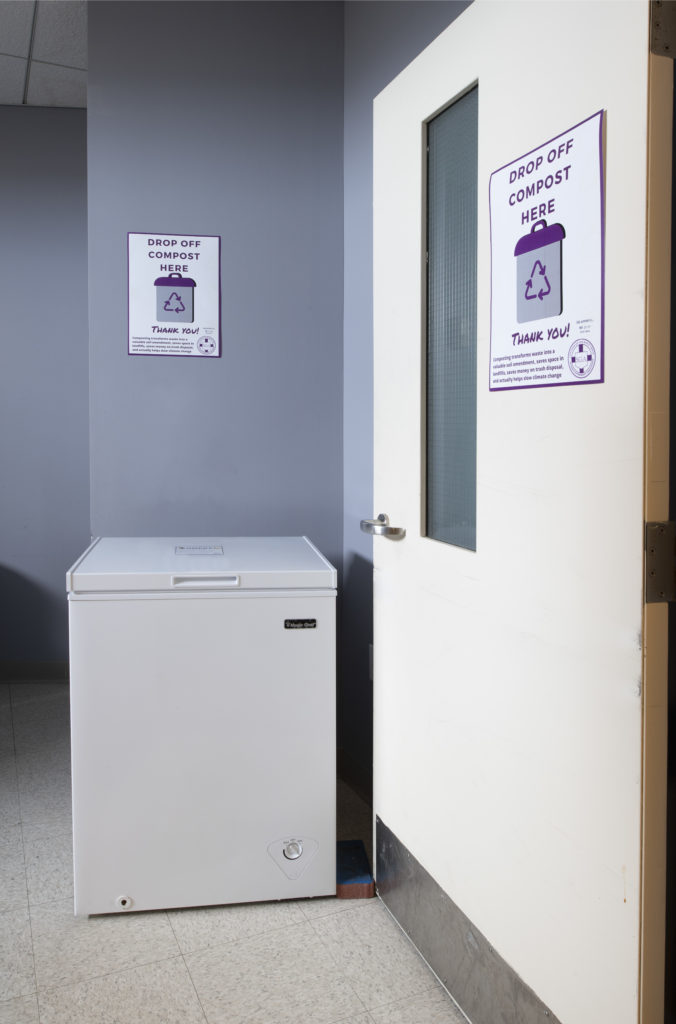
Campion House Heating: Maximizing combustion
Over 90% of fuel used in the Campion House heating system actually becomes heat. An older system may only convert 56% to 70% of fuel to heat. A higher conversation rate means more energy savings and less carbon emissions.
